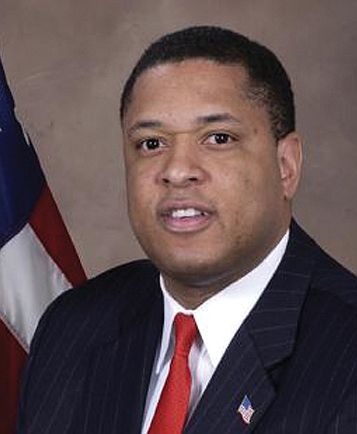RRHA seeks additional funds to maintain public housing
Jeremy M. Lazarus | 3/30/2023, 6 p.m.
The city’s public housing authority needs to invest $42 million to fix the most urgent problems with roofs, boilers, plumbing, wiring and other aging infrastructure in the apartment communities it operates in Richmond, according the chief executive, Steven B. Nesmith.
Mr. Nesmith said the only problem is that annual federal appropriation to make the improvements will only cover about one-third of the cost, or about $14.2 million, that the Richmond Redevelopment and Housing Authority faces.
“It’s just not enough money,” he said.
That’s why he said RRHA will seek grants from foundations and other private housing sources to increase the total funding available. “We need public-private partnerships,” he said.
Mr. Nesmith spoke during an East End ceremony Monday afternoon to present RRHA with its annual funding from the U.S. Department of Housing and Urban Development for capital needs.
U.S. Sen. Mark R. Warner came to Richmond to highlight the funding going to RRHA, and drew Mayor Levar M. Stoney, four members of City Council, HUD officials and the staffs from RRHA and nonprofits engaged in affordable housing development.
The senator presented an oversized check for $14 million, just shy of the actual $14.27 million that the U.S. Department of Housing and Urban Development announced last month would be coming to RRHA during the current year to use for infrastructure repair and replacement.
HUD reported RRHA’s appropriation along with the specific funding for the more than 2,700 housing authorities across the country which manage public housing for the federal department. In all, $3.3 billion is being distributed nationally to address infrastructure needs in public housing, HUD stated in the Feb. 23 release.
The 2023 appropriation to RRHA represents a $2 million increase from the 2022 appropriation of $12.2 million for capital needs, according to HUD’s figures.
Mr. Nesmith said that RRHA’s problem is more severe than most “as we have the oldest public housing infrastructure” between Miami and New Hampshire on the Eastern seaboard, with the earliest public housing in the city dating to the 1940s.







